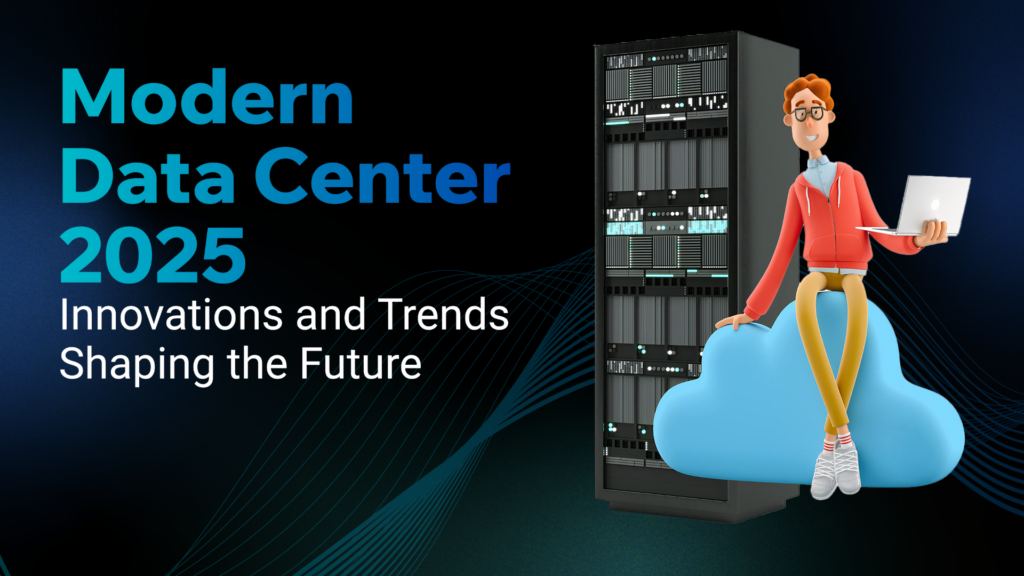
Modern data centers in 2025 represent the beating heart of the digital economy. They are more than physical infrastructures; they are the lifeline of cloud computing, IoT, AI, and global connectivity. So, what defines a modern data center today? Simply put, it’s a combination of scalability, efficiency, and security powered by cutting-edge technologies.
Data centers have evolved dramatically, transitioning from traditional server rooms to sophisticated, software-defined ecosystems. This evolution is driven by an increasing need for real-time processing, better resource utilization, and sustainable operations.
Core Components of Modern Data Centers
Modern data centers rely on three pillars: servers, storage, and networking. These components form the backbone of operations, enabling the seamless delivery of services.
Virtualization and Hyperconvergence
Virtualization allows data centers to decouple software from hardware, maximizing hardware efficiency. Hyperconverged infrastructure (HCI) integrates computing, storage, and networking into a single platform, reducing complexity and operational costs.
Key Trends in Data Centers for 2025
AI-Driven Operations
Artificial intelligence is transforming how data centers operate. AI tools now predict hardware failures, optimize workloads, and improve energy efficiency by analyzing vast datasets in real time.
The Rise of Edge Computing
With IoT and 5G driving unprecedented data creation, edge computing has emerged as a solution. Edge data centers process data closer to its source, reducing latency and bandwidth costs.
Sustainability in Data Centers
Environmental sustainability has become a focal point in 2025.
- Energy Efficiency and Green Technologies
Data centers now implement energy-efficient solutions such as liquid cooling and smart energy management systems. The integration of renewable energy sources like solar and wind has significantly reduced their carbon footprint. - Renewable Energy Integration
Tech leaders are powering data centers with renewable energy, ensuring sustainable operations.
Data Security in 2025
Zero Trust Architecture
A zero-trust model ensures every access request is verified, regardless of the network’s origin, minimizing potential breaches.
Advanced Encryption
Data centers now deploy end-to-end encryption to secure sensitive information, making it virtually impossible for unauthorized entities to gain access.
Edge Computing and Its Role
Advantages Over Traditional Models
Edge computing improves performance, reduces latency, and minimizes dependence on centralized cloud infrastructure.
Artificial Intelligence in Data Centers
Predictive Maintenance
AI-powered predictive maintenance tools monitor hardware health, alerting operators before failures occur, thereby reducing downtime.
Optimizing Workloads
Machine learning models analyze workloads to allocate resources dynamically, balancing demand and power usage.
The Shift Toward Hyperscale Data Centers
Major Players and Market Growth
Hyperscale facilities, designed to handle massive data loads, have become critical for scalability and performance.
Modern Cooling Technologies
Liquid Cooling Systems
Liquid cooling is replacing traditional air-based solutions, providing superior temperature control and efficiency.
AI-Based Cooling Optimization
AI algorithms now monitor thermal conditions in real time, adjusting cooling systems to optimize performance and reduce energy use.
The Impact of 5G on Data Centers
Adapting Infrastructure
Data centers are upgrading to support 5G workloads, ensuring smooth operation of latency-sensitive applications.
FAQs
What makes a data center “modern”?
A modern data center uses advanced technologies like AI, edge computing, and sustainable energy to enhance scalability and efficiency.
How does AI improve data center operations?
AI optimizes resource allocation, predicts hardware failures, and enhances energy efficiency through machine learning.
What is edge computing, and why is it important?
Edge computing processes data closer to its source, reducing latency and enabling faster decision-making.
Why is sustainability crucial in data centers?
Sustainability reduces environmental impact and lowers operational costs by leveraging energy-efficient technologies.
How do modern cooling systems work?
Liquid cooling and AI-based solutions provide efficient temperature management, reducing energy consumption.
What are hyperscale data centers?
Hyperscale data centers support massive workloads and ensure seamless performance.



